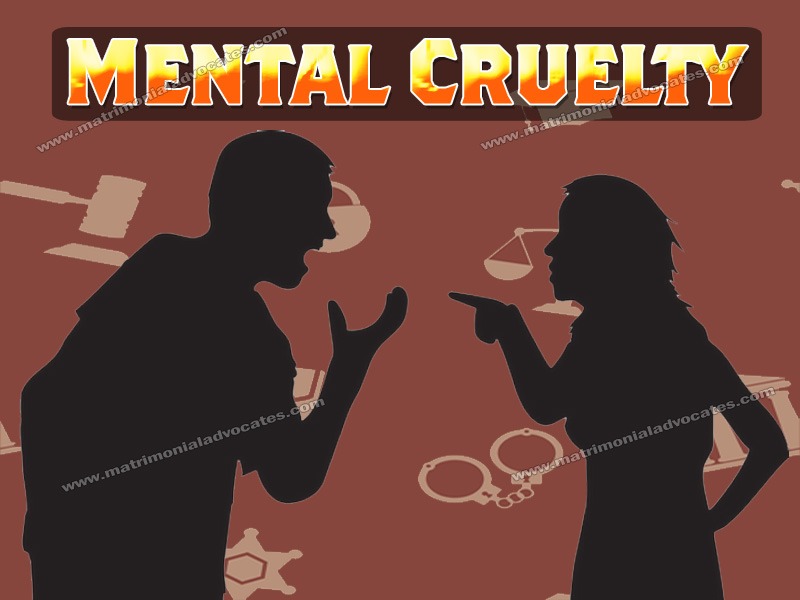
To be well-versed with the concept of cruelty as a ground for divorce, reference can be made to the various provisions given under the statues of each personal law which talks about cruelty as a ground for divorce. Apart from being a ground for divorce, the Indian Penal Code, 1860 makes cruelty a punishable offence under Section 498A. Section 498A of the Indian Penal Code, 1860 states as under:
“498A. Husband or relative of husband of a woman subjecting her to cruelty.—Whoever, being the husband or the relative of the husband of a woman, subjects such woman to cruelty shall be punished with imprisonment for a term which may extend to three years and shall also be liable to fine.
Explanation.—for the purposes of this section, “cruelty” means—
(a) any wilful conduct which is of such a nature as is likely to drive the woman to commit suicide or to cause grave injury or danger to life, limb or health (whether mental or physical) of the woman; or
(b) harassment of the woman where such harassment is with a view to coercing her or any person related to her to meet any unlawful demand for any property or valuable security or is on account of failure by her or any person related to her to meet such demand.”
Cruelty can take various forms, and the most prevalent forms of cruelty are physical cruelty and mental cruelty. Establishing physical cruelty is relatively an easier task than proving mental cruelty and it is in cases of mental cruelty that the judicial application of mind takes place on a case to case basis on the facts and circumstances of each case.
In the case of Sirajmohmedkhan Janmohamadkhan vs. Harizunnisa Yasinkhan [1981 AIR 1972], the Supreme Court stated that the concept of legal cruelty changes according to the changes and advancement of social concept and standards of living. With the advancement of our social conceptions, this feature has obtained legislative recognition, that a second marriage is a sufficient ground for separate residence and maintenance. Moreover, to establish legal cruelty, it is not necessary that physical violence should be used. Continuous ill-treatment, cessation of marital intercourse, studied neglect, indifference on the part of the husband, and an assertion on the part of the husband that the wife is unchaste are all factors which lead to mental or legal cruelty.
In the case of mental cruelty, the determination starts at the enquiry as to the nature of the cruel treatment and then as to the impact of such treatment on the mind of the spouse. Whether it caused reasonable apprehension that it would be harmful or injurious to live with the other, ultimately, is a matter of inference to be drawn by taking into account the nature of the conduct and its effect on the complaining spouse. This was reiterated in the case of Shobha Rani vs Madhukar Reddi [1988 AIR 121].
In the case of Savitri Pandey vs. Prem Chandra Pandey [(2002) 2 SCC 73], the Supreme Court stated that mental cruelty is the conduct of other spouse which causes mental suffering or fear to the matrimonial life of the other. “Cruelty”, therefore, postulates a treatment of the petitioner with such cruelty as to cause a reasonable apprehension in his or her mind that it would be harmful or injurious for the petitioner to live with the other party.
In the case of Parveen Mehta vs. Inderjit Mehta [(2002) 5 SCC 706], defined cruelty as under:
“Cruelty for the purpose of Section 13(1)(i-a) is to be taken as a behavior by one spouse towards the other, which causes reasonable apprehension in the mind of the latter that it is not safe for him or her to continue the matrimonial relationship with the other. Mental cruelty is a state of mind and feeling with one of the spouses due to the behavior or behavioral pattern by the other. Unlike the case of physical cruelty, mental cruelty is difficult to establish by direct evidence. It is necessarily a matter of inference to be drawn from the facts and circumstances of the case. A feeling of anguish, disappointment and frustration in one spouse caused by the conduct of the other can only be appreciated on assessing the attending facts and circumstances in which the two partners of matrimonial life have been living. The inference has to be drawn from the attending facts and circumstances taken cumulatively. In case of mental cruelty it will not be a correct approach to take an instance of misbehavior in isolation and then pose the question whether such behavior is sufficient by itself to cause mental cruelty.”
In Chetan Dass vs. Kamla Devi [(2001) 4 SCC 250] , this Court observed that the matrimonial matters have to be basically decided on its facts. In the words of the Court:
“Matrimonial matters are matters of delicate human and emotional relationship. It demands mutual trust, regard, respect, love and affection with sufficient play for reasonable adjustments with the spouse. The relationship has to conform to the social norms as well.
The matrimonial conduct has now come to be governed by statute framed, keeping in view such norms and changed social order. It is sought to be controlled in the interest of the individuals as well as in broader perspective, for regulating matrimonial norms for making of a well-knit, healthy and not a disturbed and porous society.
The institution of marriage occupies an important place and role to play in the society, in general. Therefore, it would not be appropriate to apply any submission of “irretrievably broken marriage” as a straitjacket formula for grant of relief of divorce. This aspect has to be considered in the background of the other facts and circumstances of the case.”
The major element as to why mental cruelty needs such an extensive application of judicial mind is the factum of their being a lack of direct evidence unlike in the case of physical cruelty. Yet another element that comes into play is the fact that in case of mental cruelty, there cannot be a straight-jacket formula to determine what would constitute mental cruelty universally. What may constitute cruelty for one might not be cruelty for the other. It depends on a fact to fact basis, depending on the social status, circumstances, situations etc. to determine if certain acts would come under the definition of mental cruelty and it is for this determination, that the courts play an active role.





